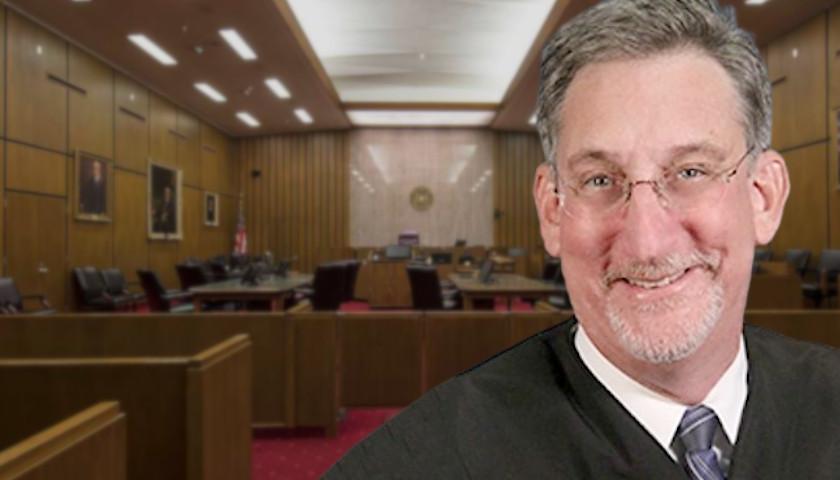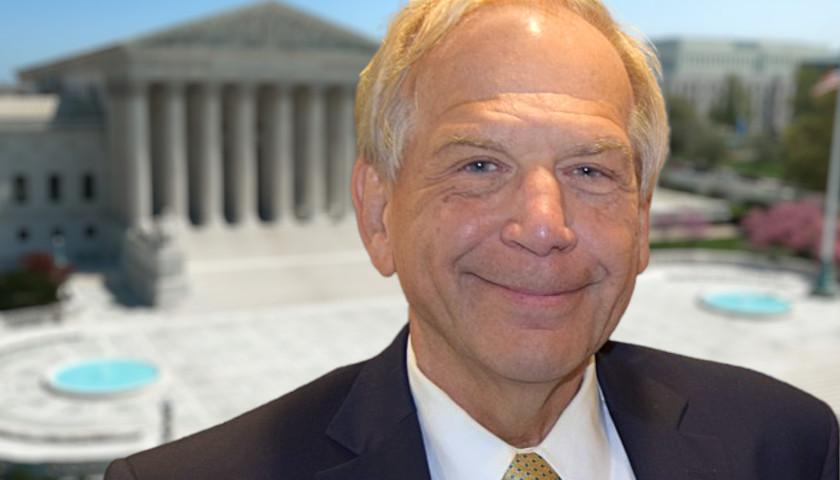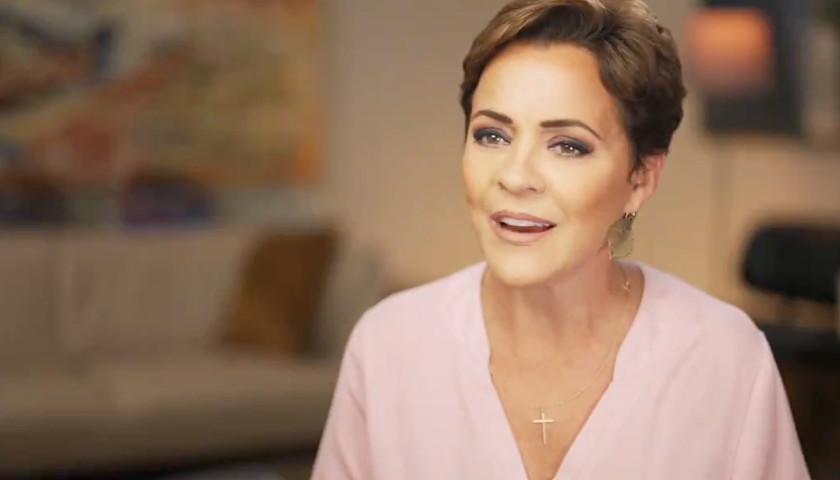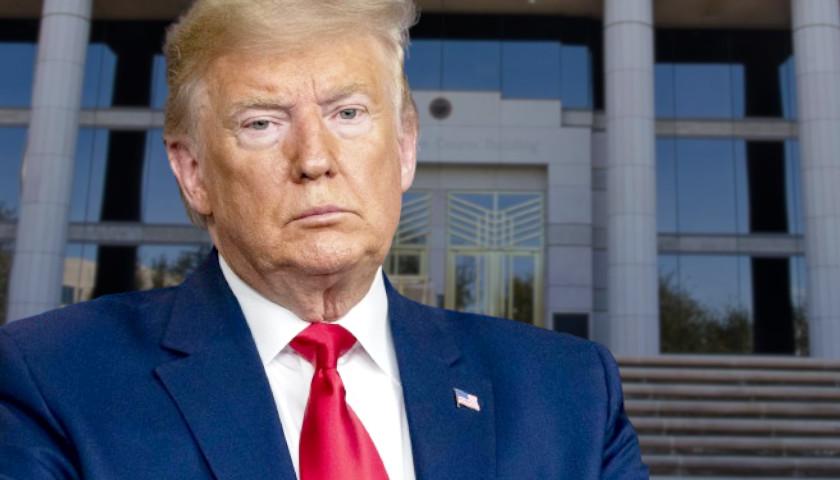Maricopa County Superior Court Judge John Hannah issued a ruling Wednesday denying Kari Lake’s special action that requested to inspect the ballot affidavit envelopes, or the electronic images of those envelopes, from Maricopa County’s 2022 general election. The recorder’s office denied Lake’s initial public records request for the affidavits because they contained voters’ signatures, so she sued the county. During the September trial, Hannah refused to allow most of Lake’s witnesses to testify or her exhibits into evidence.
Shelby Busch, the co-founder of We the People AZ Alliance, which has been investigating illegal election activities for the Lake campaign, told The Arizona Sun Times, “Judge Hannah’s decision was predictably bad. Denying Kari the ability to put forward witnesses, testimony or even a rebuttal to the County is further evidence that he is a far-left Judge trying to legislate from the bench. This is the people’s election and denying them the right to inspect public records is further confirmation that protecting the corrupt institution is their primary goal. Journalists everywhere should be outraged, this is a huge miscarriage to public transparency and accountability, but how many of them will step up?”
Even though voters sign the outside of the envelopes, then drop their ballots in the public mail system where many people see their signatures, Hannah claimed, “Disclosure of the ballot affidavit envelopes therefore would create a risk of widespread fraud where none exists at present.”
Hannah (pictured above) also claimed, “The release of the ballot affidavit envelopes would also create a real possibility of voter harassment.” He relayed how witnesses testified during the hearing about how canvassers showed up at their homes to ask them about their votes. However, the canvassers showed up even though the ballot affidavit envelopes were not released to the public.
He expressed his concern about identity theft but didn’t mention that the public can inspect signatures on candidates’ nominating petitions, deeds filed with county recorders, or that signatures are provided publicly in many capacities, such as signing credit card receipts and checks when making purchases.
Hannah , who was appointed by Democratic Governor Janet Napolitano to the bench, cited the concerns about privacy expressed by the county’s witnesses while testifying. When one of them, Bonnie Eckard, was asked whether she was concerned about her signature becoming public when signing a candidate petition or deed, she said no. She also admitted she votes by mail, where her signature is visible on the outside of the envelope.
Hannah said “the mere perception of risk among potential voters like these, especially those who are elderly or otherwise vulnerable, would have serious adverse consequences.” He quoted Maricopa County Recorder Stephen Richer stating that it would have a “chilling effect” on voters using mail-in ballots. He didn’t address the fact that if voters were concerned about putting their signature on envelopes in the mail, they could either deposit their ballots in ballot drop-off boxes or vote in person.
Hannah said “voter disenfranchisement would likely result,” but didn’t address the fact that Lake wanted to examine the ballot affidavit envelopes in order to investigate the widespread allegations of voter disenfranchisement. Similarly, he said it would “create election integrity issues” but failed to acknowledge large percentages of Arizonans believe there were election integrity problems with the election. A poll from Rasmussen Reports in April found 55 percent of likely voters believe it is likely that problems with the 2022 election in Maricopa County affected the outcome.
He admitted that “about 16,000 of the signatures on the ballot affidavit envelopes were found to be inconsistent with the signatures in the voter registration database.”
He claimed that election workers contacted 14,200 of those voters and successfully cured their ballots.
Lake’s lawsuit provided testimony from election signature verification whistleblowers who said under oath that they didn’t believe ballots that needed curing were actually cured; managers approved large batches of mismatching signatures.
Hannah admitted that both parties agreed that the ballot affidavit envelopes are public records and that the court must start with a presumption that “disclosure of public records is in the public interest.” However, he said case law also provides that “an unlimited right of inspection might lead to substantial and irreparable private or public harm,” and said “the interests of confidentiality, privacy or the best interests of the state in carrying out its legitimate activities outweigh the general policy of open access.”
He said A.R.S. 16-168(F) prohibits the release of the ballot affidavit envelopes but said the part of that statute that authorizes the release for “election purposes” doesn’t apply. It states, “Nothing in this section shall preclude public inspection of voter registration records at the office of the county recorder for the purposes prescribed by this section … except … the records containing a voter’s signature … shall not be accessible or reproduced by any person other than … for election purposes and for news gathering purposes by a person engaged in newspaper, radio, television or reportorial work.”
Hannah said since the election was over, the exception for election purposes didn’t apply, even though Lake was clearly contesting the election and the statute did not say anything about a deadline limitation.
Hannah said in his opinion that the statute doesn’t allow the release, “As Mr. Richer pointed out in his testimony, the confidentiality requirement of section 16- 168(F) protects not only the privacy and security interests of individual voters but also the integrity of the election process itself.”
He dismissed Lake’s concern that the county was using signatures on previous ballot affidavits to match with voters’ signatures on the 2022 election ballot affidavits, which Yavapai County Superior Court Judge John Napper recently ruled was illegal. He said that ruling “will have no bearing on this one” until there is a final ruling in that case. Napper made his initial ruling denying the defendants’ Motion to Dismiss. Napper’s decision interpreted the law to mean that the voter registration record does not include ballot affidavits. If so, then they would not be provided the protection of A.R.S. 16-168(F).
Hannah claimed that “Ms. Lake did not even argue to the trial court, in the election contest, that the recorder had erroneously verified any individual ballot through a faulty signature match.” However, pointing out individual ballots that were counted is not the standard required. Hannah admitted that Lake argued that the county failed to perform the signature review. The landmark Miller v. Picacho Elementary School case established, “When a non-technical statute is violated, and the violation renders the results of any election mathematically ‘uncertain,’ the results from the uncertain election must be set aside.”
Similarly, in Reyes v. Cuming, a case involving illegal votes, the final court found that even though it would be “impracticable” for the elections department to comply with the signature verification statute fully, instead of just “substantial compliance,” “it does not excuse the complete noncompliance with this nontechnical statute. … Indeed, “[e]lection statutes are mandatory, not ‘advisory,’ or else they would not be law at all.”
Hannah said that allowing Lake to review the ballot affidavit envelopes would not be in the “best interests of the state,” although 55 percent of likely voters believe it is likely that problems with the 2022 election in Maricopa County affected the outcome. He claimed, “It would create a significant risk of widespread voter fraud where none now exists.”
Hannah directed Richer to lodge a proposed form of judgment and to file any application for costs or attorneys’ fees within 20 days of his decision.
– – –
Rachel Alexander is a reporter at The Arizona Sun Times and The Star News Network. Follow Rachel on Twitter / X. Email tips to [email protected].









Wow! I hope the appeal process continues. This is lunacy.